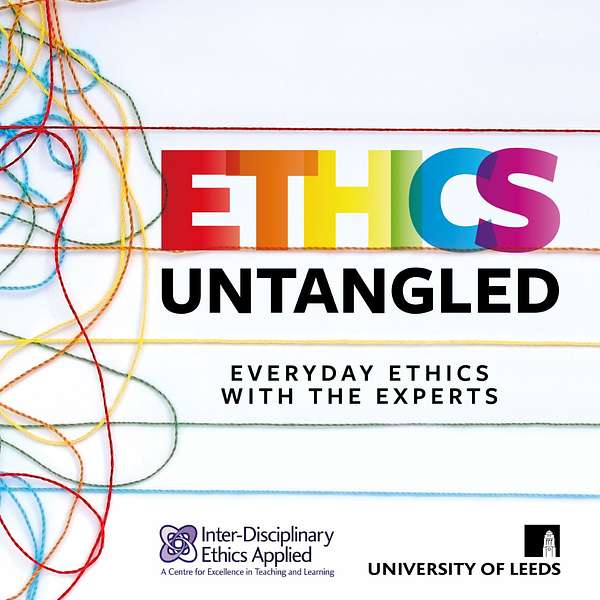
Ethics Untangled
Ethics Untangled is a series of conversations about the ethical issues that affect all of us, with academics who have spent some time thinking about them. It is brought to you by the IDEA Centre, a specialist unit for teaching, research, training and consultancy in Applied Ethics at the University of Leeds.
Find out more about IDEA, including our Masters programmes in Healthcare Ethics and Applied and Professional Ethics, our PhDs and our consultancy services, here:
ahc.leeds.ac.uk/ethics
Ethics Untangled is edited by Mark Smith at Leeds Media Services.
Music is by Kate Wood.
Ethics Untangled
42. How should clinicians communicate with young people experiencing mental health difficulties? With Lisa Bortolotti
Professor Lisa Bortolotti is a philosopher at the University of Birmingham, who has been working on a fascinating interdisciplinary project looking at what happens when young people experiencing mental health difficulties talk to clinicians about those difficulties. The project has involved closely examining hours of audio and video material of these encounters, as well as talking to the young people themselves, in the hope of gaining insights which can help clinicians improve their practice. Emerging from the work has been a focus on agency and the agential stance. We discuss what that means and why it's important, drawing on some examples from the project.
Links to further reading:
Agency project page on the McPin Foundation website: https://mcpin.org/project/agency/ (has a lot of open access resources)
Three relevant open access papers:
- L Bortolotti (2025). Agential Epistemic Injustice in Clinical Interactions Is Bad for Medicine. Philosophy of Medicine 6 (1), 1-19.
- C Bergen, L Bortolotti, R Temple, et al. (2023). Implying implausibility and undermining versus accepting peoples’ experiences of suicidal ideation and self-harm in Emergency Department psychosocial assessments. Frontiers in Psychiatry 14.
- C Bergen, L Bortolotti, K Tallent, et al. (2022). Communication in youth health clinical encounters: Introducing the agential stance. Theory & Psychology 32 (5), 667-690.
Ethics Untangled is produced by IDEA, The Ethics Centre at the University of Leeds.
Bluesky: @ethicsuntangled.bsky.social
Facebook: https://www.facebook.com/ideacetl
LinkedIn: https://www.linkedin.com/company/idea-ethics-centre/